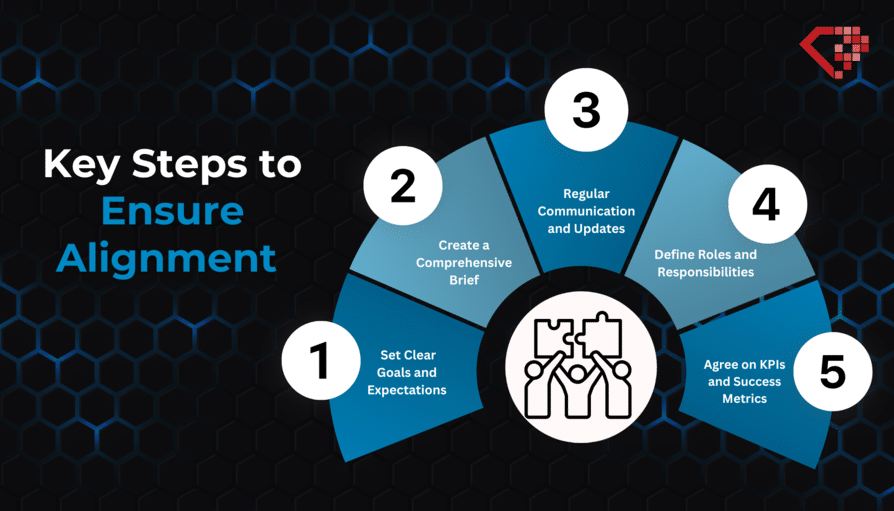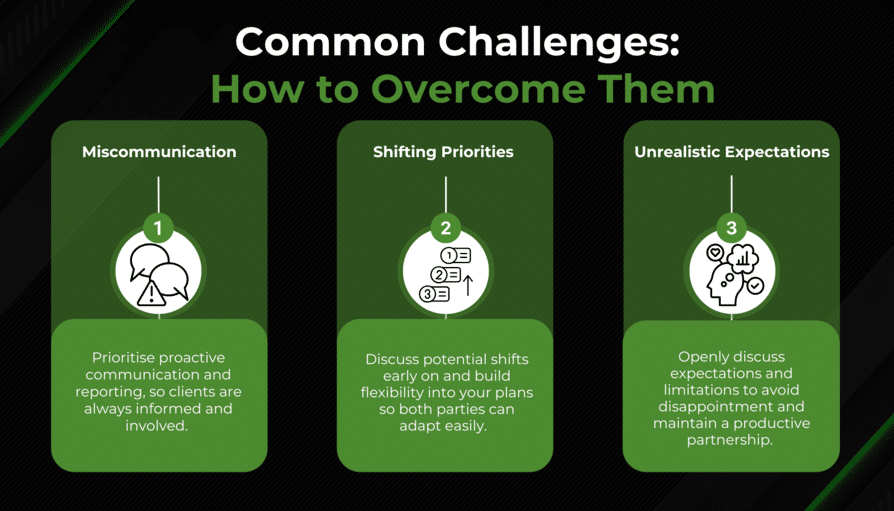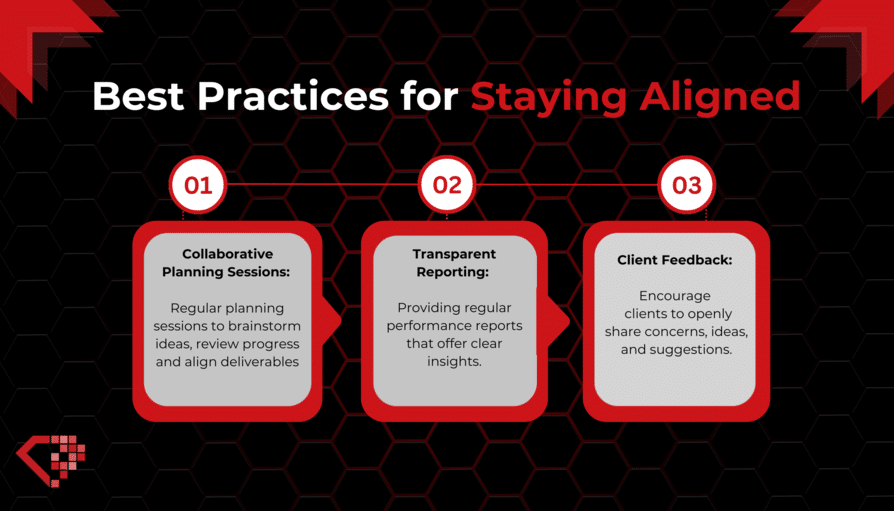Imagine a rowing team where everyone is pulling in different directions. The boat goes nowhere, right? That is what it is like when a brand and its marketing agency are not aligned.
For a truly successful marketing alignment strategy, both parties need to be moving in the same direction, with a shared vision and understanding of their goals. Misalignment can lead to wasted resources, missed opportunities, and ineffective campaigns.
This post will provide actionable steps to help you foster strong alignment with your marketing agency. We will explore how to get everyone involved working together towards success.
Why Alignment Between Company and Agency Matters
Alignment is the foundation of a successful company-agency relationship. When everyone is on the same page, it ensures that your marketing strategies reflect your brand values and contribute to your overall objectives. Effective alignment with company strategy guarantees that agency efforts are not just well-executed but also deeply connected to the broader goals of the business.
Agency and company strategy alignment helps avoid misunderstandings, speeds up decision-making, and maximises your return on investment (ROI). It is about working smarter, not harder!
At Ruby Digital, we believe that alignment starts with building trust and a collaborative spirit. We also recognise the importance of cultural fit, ensuring that our values and working style align with those of our clients.
Key Steps to Ensure Alignment
#1 – Set Clear Goals and Expectations:
As with all effective business strategies, it is a great start to set SMART goals: Specific, Measurable, Achievable, Relevant, and Time-bound. Clearly outline expectations, including timelines for deliverables, budget constraints, and key performance benchmarks. This helps avoid misunderstandings and keeps everyone accountable.
#2 – Create a Comprehensive Brief:
A detailed marketing brief should include information about your target audience, brand voice, competitive landscape, key messaging, and overall campaign objectives. Ruby Digital works closely with the brands we represent to capture their vision and provide a clear roadmap for success, whether that involves SEO, paid advertising, or engaging potential customers on social media.
#3 – Regular Communication and Updates:
Consistent communication is vital. Schedule regular check-ins, such as weekly meetings or monthly reviews, to discuss progress, address any roadblocks, and ensure everyone is on track. We use collaboration tools like Asana, and Microsoft tools such as Microsoft Teams for efficient communication and information sharing.
#4 – Define Roles and Responsibilities:
Clearly define the roles and responsibilities of both the company and the agency. This ensures everyone understands their responsibilities and avoids duplication of effort or gaps in execution. Consider creating a responsibility matrix to document who is accountable for each task.
#5 – Agree on KPIs and Success Metrics:
Measurable KPIs allow both parties to track progress and evaluate the success of marketing efforts. Examples of KPIs include organic traffic growth, social media engagement, lead generation, conversion rates, and cost-per-acquisition. Regularly analysing these KPIs helps you make data-driven adjustments to your strategy.

Common Challenges and How to Overcome Them
Miscommunication:
Unclear instructions or assumptions can lead to setbacks and frustration. Foster a culture of open communication to ensure everyone is on the same page. At Ruby Digital, we prioritise proactive communication and reporting, so our clients are always informed and involved.
Shifting Priorities:
Company priorities can change quickly, which can impact your marketing strategy. Discuss potential shifts early on and build flexibility into your plans so both parties can adapt easily.
Unrealistic Expectations:
Ensure that your marketing goals are realistic and achievable within the given budget and timeline. Openly discuss expectations and limitations to avoid disappointment and maintain a productive partnership.

Best Practices for Staying Aligned
- Collaborative Planning Sessions:
Ruby Digital offers all our clients regular planning sessions to brainstorm ideas, review progress, and ensure we are aligned on deliverables and timelines. This collaborative approach keeps everyone moving in the same direction.
- Transparent Reporting:
We provide regular performance reports that offer clear insights into what is working and what needs adjustment. This builds trust and allows for data-driven decision-making.
- Client Feedback:
At Ruby Digital, we value your input. We encourage our clients to openly share concerns, ideas, and suggestions for improvement. No-one knows your business better than you!

In Closing
When your company and marketing agency’s strategies are aligned, it is like a beautifully tuned orchestra – every part working together to create a harmonious and impactful result!
By setting clear goals, communicating effectively, and fostering a collaborative environment, you can ensure that your business and agency are playing the same tune. This leads to more successful marketing campaigns, greater ROI, and a stronger partnership.
Ready to experience the harmony of a truly aligned marketing strategy?
Contact Ruby Digital today and let us orchestrate your marketing success together!


